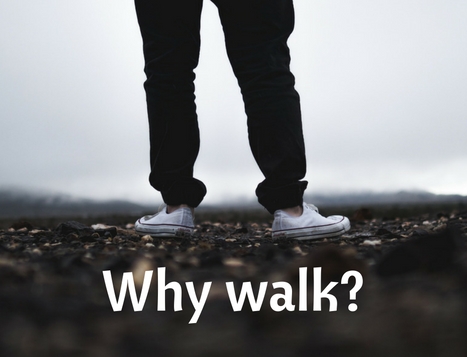What is the most common excuse you make when it comes to your health and fitness?
In my line of work, and with decades of my own personal experience in yo-yo dieting and riding the weight-loss-roller-coaster, I have heard (if not made), every excuse under the sun when it comes to avoiding eating well and exercising!
Having experienced two polar opposite realities in my life (ie: unhappy, overweight and unhealthy VS happy, fit and healthy), I’ve learned many valuable lessons. One of the most critical is this:
We are all blessed with the freedom of choice!
We can either:
- Live each day making purposeful progress towards the reality we desire….
Or we can:
- Continue to make excuses on why we can’t or why we shouldn’t.

Have you ever heard people say the following?
- I don’t have the time.
- I’m too tired.
- I can’t afford gym membership.
- I don’t have any exercise equipment at home.
- It’s too hard.
- My (body part) hurts.
- What’s the point, I’ve failed in the past.
- I’ll never succeed, I never have.
- I’m too old to start caring about myself now.
Do you know what? I’m calling it…. they’re all EXCUSES!!
Well…. to be even more accurate, they are all ‘comfort distortions’…. distortions of the truth that we create in our own minds, in order to feel a sense of comfort and safety, but effectively they are an act of self-sabotage, because they distract us from actually achieving the goals we wish to achieve!
Ultimately, they are driven by a deeper, unconscious desire to protect ourselves against negative feelings such as anxiety or shame…. and the more anxious or ashamed we are likely to feel, the more likely we will create barriers that hinder our goal achievement. They shift the focus from issues relating to our internal sense of ‘self’, towards externalised issues beyond our sense of ‘self’.
For example… if someone asks you why you haven’t been jogging lately, or why you’re eating chips when you’ve declared you’re on a ‘diet’, your subconscious quickly tries to protect your sense of ‘self’ from being attacked or criticised. The ‘excuse’ you throw right back might be: “it’s too cold outside for jogging”…. or…. “I didn’t have time to do the grocery shopping”!
In a way, this self-sabotaging behaviour also acts as a self-protective mechanism as well, because we then feel less burdened, less anxious, less ashamed, and ‘off the hook’…. a reward that then reinforces the excuse! However… the ‘reward’ also adds to the counter-productive cycle that sabotages the achievement of the ultimate goal.
In deriving an initial sense of reward or relief from our ‘comfort distortions’, (eg: not enough time, not enough money, or not enough skill)…. we will often then go to extreme lengths to prove or validate them. When we succeed in proving those excuses, we feel an even greater sense of victory…. which then further reinforces and perpetuates the distortion.
Do you see a pattern emerging here?
The unfortunate truth though…. is that some people will go to extraordinary self-sabotaging lengths, just to derive that small sense of victory from proving their excuses to be valid: wasting hours watching Netflix or scrolling through social media…. wasting money on cigarettes, alcohol or junk food…. limiting or failing to apply resourcefulness. Crazy right?!!

Choosing the Path of Purposeful Progress:
When we decide to step up and be stronger than our excuses, they fail to have any power over our life!
Making a change in our excuse-making behaviour is just like breaking any other habit and although it requires conscious focus, it’s actually easier than you might imagine!
Shift the Goal, Shift the Perception:
One of the easiest actions we can immediately take to ‘beat’ our own distortions, is to create goals that we ‘want’ to achieve, rather than goals that we ‘should’ achieve.
In changing our goal-focused language and our perceptions, we can effectively minimise the potential for anxiety &/or shame and thus reduce the need for comfort and safety (ie: excuses).
For example: “I should go on a diet” versus “I want to eat healthier to achieve a better quality of life”, creates a completely different mindset and approach. One is driven by a sense of dread and obligation and the other is driven by a sense of empowered positivity. The latter is perceived as more easily achievable, which diminishes the risk of any failure-based anxiety or shame.
Reset the Thoughts, Reset the Result:
Habitual and semi-automatic behaviours are stored in an area of our brain that responds well to self-regulation activities. Mindfulness meditation, even for brief periods, is a quick and effective strategy for fostering self-control.
Sometimes breaking excuse-making habits literally requires the application of conscious focus for the rest of our lives, because old habits are never truly forgotten, they are merely tucked away and can re-emerge when we least expect it. Meditation and visualisation are great ways of reinforcing new, positive behaviours, as well as the underpinning reasons, benefits and actions required to maintain those habits.
Choosing Strength and Chasing Potential:
Reinforcing and validating our excuses ultimately holds us back from creating the life we desire. When we ‘beat’ our own distortions and discard our excuses however, we become powerful, free and unburdened. Our self-confidence, self-belief and capacity for self-determination are strengthened and our self-limiting perceptions are dissolved…. and that’s got to enable us to be better parents, right?!!
What excuse will you discard today?
__________
Are you ready to IGNITE! Your Healthy Lifestyle Revolution?
If you’d love to learn 7 Simple Secrets to Spark Your Lifestyle Revolution, register now for my IGNITE! Program. It’s MY gift to YOU!
Delivered online over 7 days, you’ll create and apply your very own Master Plan to spark your Lifestyle Revolution, based upon my top seven, simple, yet highly powerful self-honour rituals.
JOIN HERE:
http://cherierivas.com/ignite/

You may also like to read:
Reach Better Life Balance through Regular Exercise!









